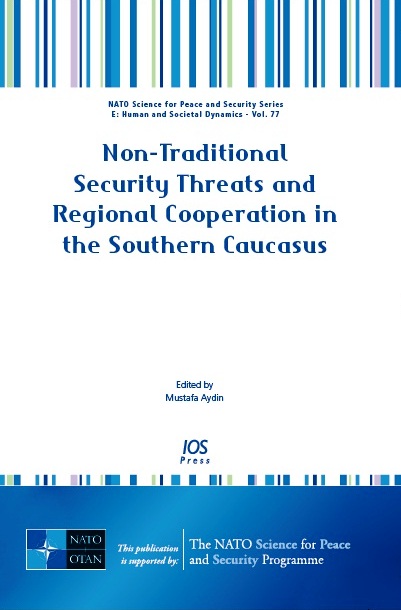
This book contains 16 papers, presented at the workshop: Non-Traditional Security Threats and Regional Cooperation in the Southern Caucasus, which was held in Istanbul, Turkey in October 2009. Whilst the Cold War did not exclude the existence of other threats, such as environmental hazards, organized crime, terrorism, economic instability and illegal immigration, it is only since the emphasis on East-West rivalry and the specter of nuclear confrontation between the two blocs have diminished that these have become articulated as major sources of concern for global security. Non-Traditional Security Threats and Regional Cooperation in the Southern Caucasus is divided into three sections. The papers in the first section provide an overview of emerging, non-traditional challenges to regional security. The second section analyzes the extent of influences from outside the region; focusing on the international dimension, and identifying the security policy orientation of both regional and international actors and the policies implemented by international governmental and non-governmental organizations operating in the region. The four papers in the third and final section deal with the prospects for cooperation from a regional perspective. The obstacles to regional cooperation in the Southern Caucasus can only be dealt with if solutions to the problems associated with transition can be identified. This book contributes to that process by analyzing and increasing awareness of non-traditional threats to security, and provides valuable insights for all those with an interest in the South Caucasian region.
Reference: Aydın, Mustafa (ed.) (2011), Non-Traditional Security Threats and Regional Cooperation in the Southern Caucasus, Hollanda: IOS Press.
